January 2023
Read more here – DDI
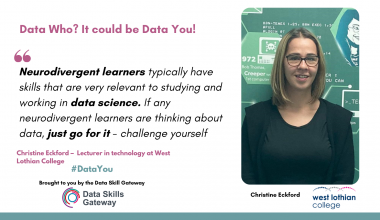
Christine Eckford is a lecturer in technology at West Lothian College. She is doing the National Progression Award in Data Science at Level 6 herself, while teaching the award at Level 4 to neurodivergent students. This is her data story….
I’ve always been interested in technology. I love a process and a procedure, and enjoy finding out how technology works.
In my late 20s, I was diagnosed as being on the autistic spectrum. It was a lightbulb moment that explained why I didn’t initially thrive in education.
That hyperactive kid constantly asking questions was me. And now, as a lecturer, I could see my younger self in others.
I’d gone into a career in project management and I’d always enjoyed statistics and targets and hitting my budgets.
So I understood the importance of data – but I never necessarily expected to teach it, or even study it.
Initially, I studied cyber security and forensics and I joined West Lothian College in 2020 to teach cybersecurity and computing courses. I led a cybersecurity course for neurodivergent learners, which was really successful. My manager at West Lothian College approached me last academic year asking if I fancied doing a data science course for neurodivergent learners. I said yes, I’d really like that.
It’s been another lightbulb for me, both studying and teaching what I might have thought would be a dry subject.
I’m close to finishing my own Level 6 National Progression Award in Data Science and we’ve covered areas like data citizenship, data visualisation and a bit of programming.
I started teaching neurodivergent students at Level 4 in February 2022. It’s a balancing act to work through a data course alongside my teaching commitments, but it gives me a good insight into what the students are having to deal with right now with online learning.
I’m learning how somebody else does it. From a lecturer’s perspective, I think we can sometimes get a bit stagnant in what we’re doing. You get a fresh pair of eyes from a student’s perspective and it’s good for me to see how Edinburgh College delivers the Award, in terms of its approach, the software it uses and how it consolidates learning.
At the moment, I’m teaching data science to two neurodivergent learners – and being on the autistic spectrum myself really helps.In any neurodivergent class, you will push each other at the beginning and you will need to find the boundaries.
The first few weeks are all about building trust. If a neurodivergent learner is bored, they will tell you. And you have to be very precise and clear with your instructions – but don’t stereotype neurodivergent learners because sometimes, they really think outside the box.
It’s about being flexible and having different delivery approaches for each individual student.
It takes time to get them comfortable and in a situation where they want to learn.
If we get it right, if we find that place where they are enjoying learning, we see real benefits. Neurodivergent learners typically have skills that are very relevant to studying and working in data science – analysis, problem-solving, troubleshooting. Early on, I set the students a cybersecurity challenge – something that would typically take a few hours. They finished it in 45 minutes.
If any neurodivergent learners are thinking about data, just go for it – challenge yourself. Start with a small thing and work your way up.
In future, I’d like to teach more classes to neurodivergent learners – and help lecturers teaching mainstream classes which include neurodivergent learners to understand the need to be flexible and support individual students effectively. I love it, but I’m learning all the time – as a data teacher and as a data student!
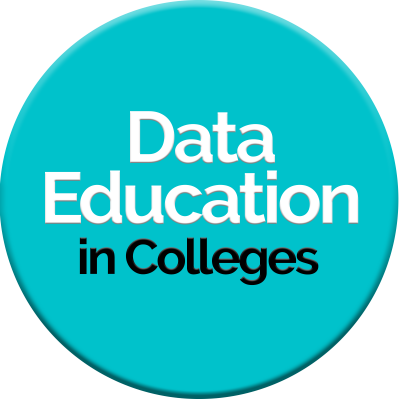

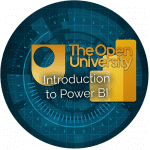

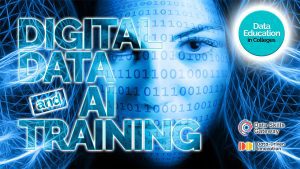
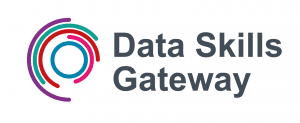

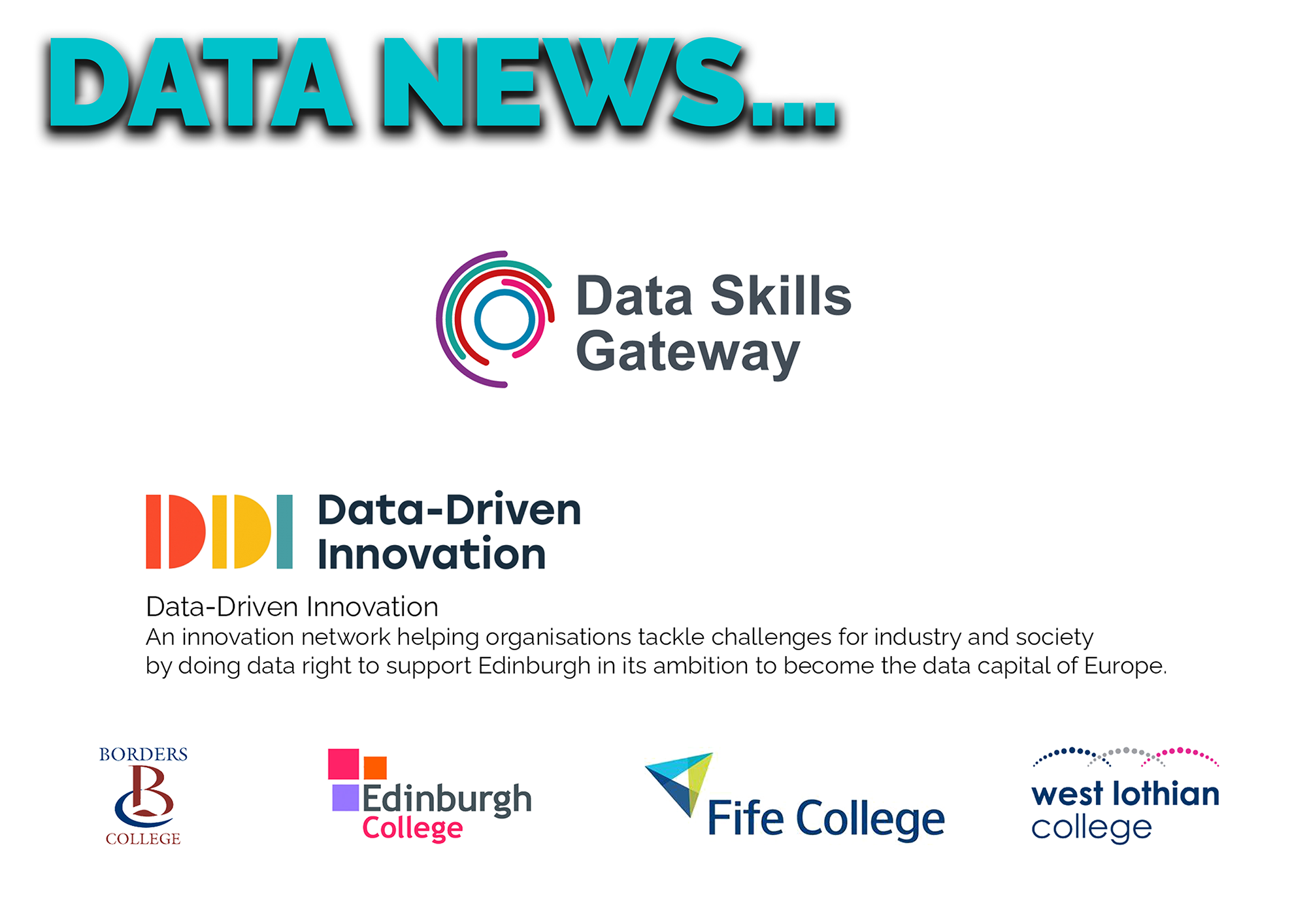

Leave a Reply